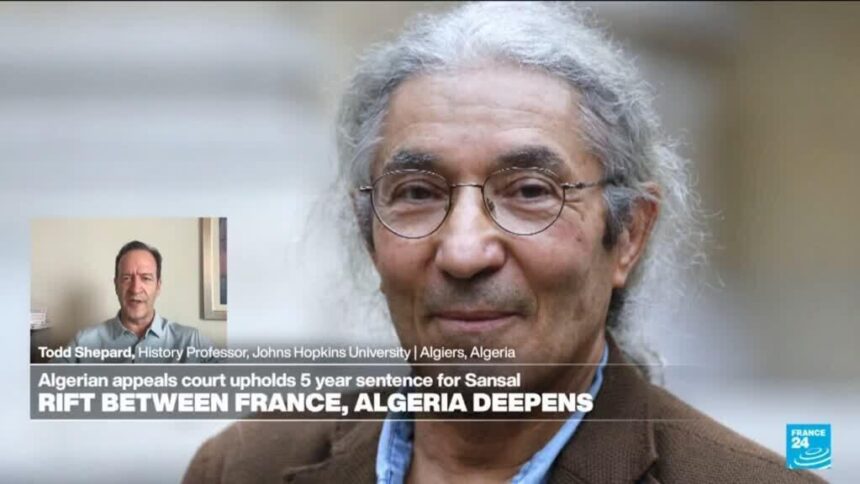An Algerian court has upheld the controversial five-year prison sentence of French-Algerian author Boualem Sansal, rejecting prosecutors’ appeal for a harsher 10-year term. Sansal, known for his thought-provoking novel “2084: The End of the World,” was convicted in March under Algeria’s stringent anti-terrorism laws for allegedly “undermining national unity.”
The case has ignited widespread concern over freedom of expression and has further strained relations between Algeria and France. Sansal’s conviction has transformed him into an unexpected symbol of resistance, garnering support from a diverse array of individuals ranging from francophone writers to far-right politicians.
To delve deeper into this complex and contentious issue, FRANCE 24’s François Picard sat down with Dr. Todd Shepard, an esteemed author and the Arthur O. Lovejoy Professor of History at Johns Hopkins Krieger School of Arts and Sciences. Dr. Shepard’s expertise in the region and his deep understanding of the historical context surrounding freedom of expression in Algeria provided invaluable insights into the nuances of Sansal’s case.
The decision to uphold Sansal’s sentence has sparked outrage among advocates of free speech and human rights, who view it as a blatant violation of fundamental democratic principles. Many fear that the Algerian government’s crackdown on dissenting voices could have chilling effects on intellectual discourse and artistic expression within the country.
The international community has also been closely monitoring the situation, with several prominent figures calling for Sansal’s release and urging Algerian authorities to respect the right to freedom of speech. The case has underscored the delicate balance between national security concerns and individual liberties, raising important questions about the limits of state power and the role of the judiciary in safeguarding fundamental rights.
As the controversy surrounding Boualem Sansal continues to unfold, it serves as a stark reminder of the ongoing challenges facing those who dare to challenge the status quo and speak truth to power. The case has galvanized a global movement in support of Sansal’s freedom and has reignited debates about the importance of protecting artistic freedom in an increasingly polarized world.








